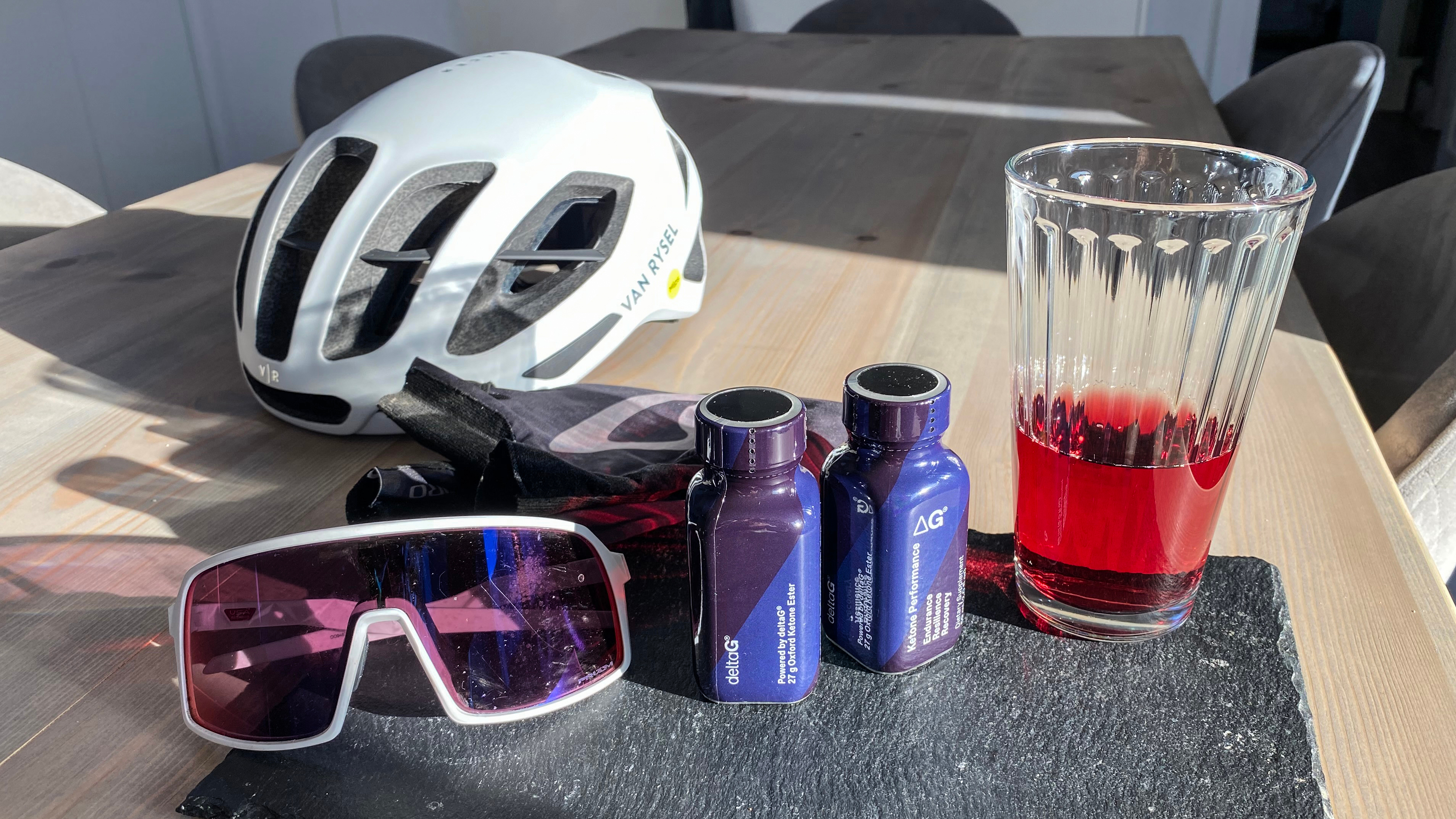
Ketones are a type of organic compound produced by the liver when the body is low in available carbohydrate and raised levels of fatty acids are circulating in the blood. This commonly occurs during prolonged endurance exercise – e.g. a long, ride – or while adhering to a strict low-carb diet. Essentially, it’s a symptom of starvation. “During this state of ‘ketosis’, ketones are used as a fuel source by the muscle, brain and heart,” says James Moran, registered dietitian and performance nutritionist at Marylebone Health.
What's in it for cyclists?
It’s been proposed that ketone supplements may help endurance cyclists. “The thinking was that by taking ketone supplements before and during long training sessions or races, riders would get extra energy,” says Marc Fell, nutrition specialist with Science in Sport and team nutritionist with Ineos Grenadiers. “It was believed that consuming ketones during exercise could increase ketone levels in the blood, promote fat utilisation, and conserve glycogen stores. In theory, this would improve performance in key race moments such as sprints or climbs, as riders would have more left in the tank available towards the end of the race or session.”
Ketones are also being studied for their role in supporting heavy training loads, altitude adaptation, and even aiding recovery from traumatic brain injuries. “Some evidence suggests ketones could improve sleep quality at altitude or mimic altitude-related benefits such as increased red blood cell mass,” says Fell.
What does the research say?
“In a cycling-specific study from 2020, Poffe et al found that when comparing ketone or ketones plus 60g/hr of carbohydrate, there were no differences in either performance or muscle glycogen breakdown,” says James Moran. “The current consensus is that taking ketone supplements before or during racing does not improve performance or spare muscle glycogen.”

Marc Fell concurs. “Currently, the evidence supporting the use of exogenous ketones (ketone supplements) by endurance cyclists is quite mixed and limited within the research. Some positive outcomes on exercise performance and recovery have been found in certain studies,” adds Fell, “but other studies have found no effect on endurance performance when consuming ketones.”
An earlier study by Poffe et al found some evidence that ketones may have potential as a signalling molecule leading to anti-catabolic effects, preventing muscle protein breakdown during periods of overreaching. “Potentially, this could have a benefit in Grand Tour stage races or intense training camps as a way to minimise over-training symptoms,” suggests Moran, “but this has only been shown in one study, which critics say failed to optimally control for dietary confounders. It may also be argued that the protocol would be insufficient to elicit overreaching in professional cyclists.”
Support for recovery?
“Recently, the focus has shifted to post-exercise recovery,” says Fell. “Ketones may aid glycogen resynthesis and muscle protein synthesis, potentially improving recovery and muscle function. But still, results here are also varied and lack definitive support. The optimal dose, form and duration required to take ketone supplements remains unknown,” he adds. Different types of ketones – ketone monoesters, ketone di-esters, ketone salts, etc – each react differently in the body. Ketone esters typically come in a 25-45ml liquid ‘shot’ form but are expensive at around £30- 40 per dose. Fell says that the high cost is one factor in why evidence is currently lacking – they are too expensive to study. “Ketone salts are cheaper but what evidence there is suggests they are more likely to cause gastrointestinal issues,” says Moran.
What are the limitations or doubts?
“Being in a state of natural ketosis is not considered optimal for highintensity cycling performance, due to the reduction in carbohydrate availability,” insists Moran. Originally, it was hypothesised that ketones could be used as a fuel source during racing, reducing the need to use muscle glycogen as a fuel, thus prolonging the amount of glycogen available for energy in the latter stages of a race. However, as mentioned above, this has not been supported by the research. The Movement for Credible Cycling (MPCC) is opposed to the use of ketones and prohibits its members from using them. Amid talk of a possible ban, the UCI has commissioned an impact assessment of ketones on health and performance, with the outcome expected to be announced next year.
Expert comment: Mark Fell
“It’s thought that ketone supplements can help endurance cyclists to recover after exercise. This would be achieved by promoting muscle glycogen resynthesis and protein synthesis alongside reducing inflammation and oxidative stress, which collectively may help to accelerate the recovery process after exercise. One study found that when a ketone supplement was consumed following exercise, it had a positive effect on red blood cell production, with a 20% increase in erythropoietin (EPO), which is the key hormone regulating red blood cell production. However, this was found only in a very acute scenario, and whether this increase in EPO translates into greater production of red blood cells is unknown.”
The bottom line on... ketones
Many WorldTour teams have experimented with ketones, though not all teams are using them routinely. “Barriers include their high cost and the need for more robust, longterm studies to establish clear benefits,” says Fell.
According to Moran, current evidence does not support the use of exogenous ketones. “Everyday amateur riders are better off focusing on carb intake,” insists Moran. “I see amateur riders not eating enough carbs around their training as they try to manage weight, but then spend the next two days overeating to compensate. This leads to suboptimal training adaptations and, often, weight gain.”







